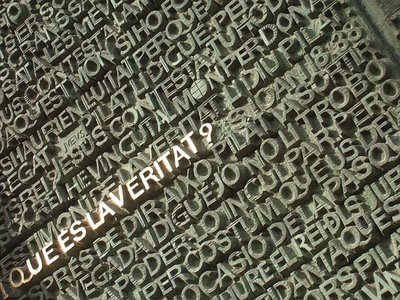Life for Rent
I was on the market for an apartment for the last weeks and I've finally found a place where I want to spend the next two years of my life. It means had a lot of discussions about renting vs. Buying. I've been, once again, showered with opinions of people who think that buying is so much better than renting.
I beg to disagree.
To start with, the economics are not as straightforward as it seems. I grind my teeth every time I hear "Paying a rent is throwing money out the window!" Rarely do I dare to say what I really think: no, it's not. You get housing in return. It's an expense like a meal at the restaurant, like a show ticket or whatever else whose consumption is limited in time. Yes, you spend money and after a while, you don't have access to the good you paid for. So what? Life goes on. Don't go thinking that you own forever all that you buy. It's mostly the opposite: so many things that you buy are actually rented. Think of your clothes: if you buy a shirt for $60 and wear it for 5 years, how is it different from renting it for $12 per year? As life goes by, you throw away as much as you accumulate since "oh boy when you're dead you don't take nothing with you but your soul, think" as said a great Asian philosopher.
Your life is rented.
Everything you own is rented: you own it only for a period of time. You can buy a house, but you can also rent it for 40 years.
There's a much more complex aspect of the economics of renting vs. Buying and the New York Times has done a very good job at explaining it. In cities like Washington, you don't make any profit from buying over renting. I won't go into details, but think of all the money you can't invest in mutual funds because you gave a cash down. Think of annual taxes, of renovation, of the closing cost of a buy, etc. A house can really be a money pit.
There's also a question of timing. As I don't pay a cash down, taxes and whatnot, I can afford a much better rental than what I could afford to buy. It might (or might not, as we saw above) reduce my likeliness of having a large house in the future. But do I want to live now or visit Italy with a cane at 70? Should young parents live in a small apartment (and move to the suburbs once all the kids want is to go out downtown) or rent a large house from the beginning to raise their kids?
Domestic economics are about finding the perfect balance between earning, saving and spending. It's not all about irresponsible spending, but neither is it about useless savings. And most of all, one should always remember that we are not eternal and that ownership and accumulation are a lost race in the long run.




